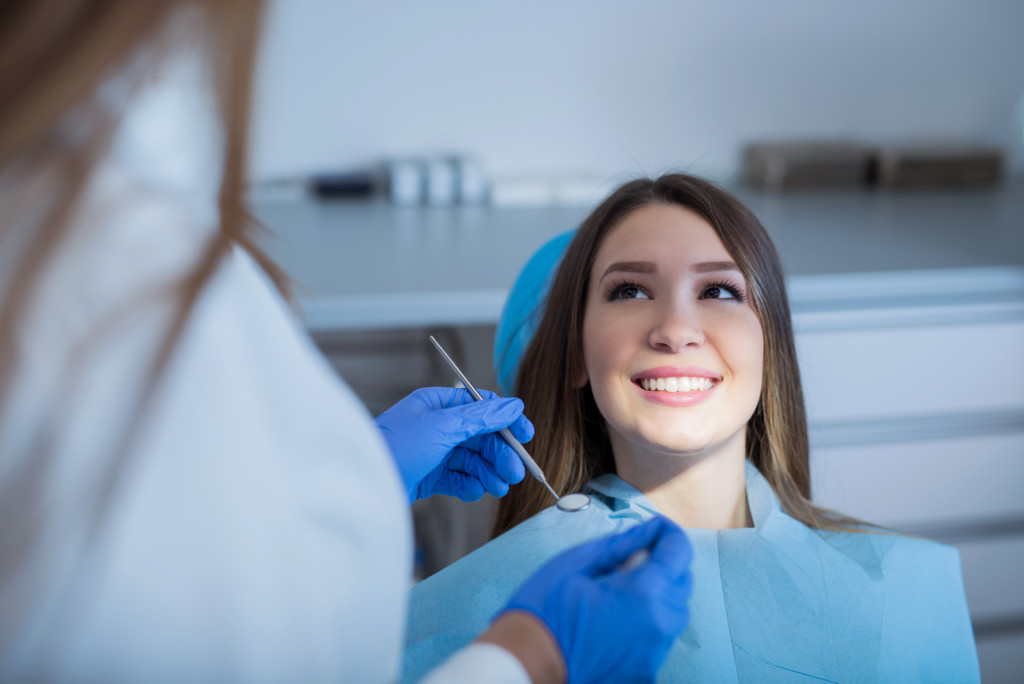You may think people run the risk of injuring their teeth when they get into a horrific car accident, but you may be surprised to learn that dental injuries are actually very common. According to experts, approximately 300,000 Americans experience a traumatic dental injury every year.
That is why it’s important to know how to prevent common types of dental injuries before they happen so you can keep your smile healthy and strong.
1. Don’t Bite Down on Anything Hard
If you’re prone to biting down hard on hard foods or chewing ice cubes, then this tip is especially important for you. Avoiding biting down on hard objects will help reduce the risk of dental fractures and tooth breakage.
When your teeth come together with forces greater than 135 pounds per square inch (psi), the enamel will have no choice but to crack or shatter.
2. Don’t Bite Your Fingernails
Biting your fingernails may seem like a soft enough activity, but you would be surprised at how often people give themselves small injuries by doing this.
Even though it might not seem like a big deal, you should take the time to stop hurting your teeth by biting your nails. The next time you’re tempted to scratch an itch on your hands, use some other method of soothing yourself instead.
3. Don’t Play Around With the Swings
Kids love playing on the swings, and that can lead to them accidentally biting down too hard on their tongues (which is extremely painful).
If you have a child of this age, make sure to remind them about proper swing safety before they start playing outside.
Avoid even getting close to nicking your tongue with those metal poles; leave the swing set for toddlers younger than five years old.
4. Don’t Bite Down on Anything Sharp
While this may be obvious to most people, there are actually some common objects that can cut your gums or break off a piece of the tooth if you bite down with too much force.
If you’re trying to break up a dog biscuit or help your child snap apart their chicken nugget, use caution and avoid crushing hard objects between your teeth.
For example, have you ever accidentally bitten down on an ice cube? This can cause tiny shards of glass-like ice pieces to shoot back up into the soft tissue in the roof of your mouth and damage several teeth in the process.
5. Don’t Ignore Dirty Teeth
You may think that brushing after every meal is enough to keep your teeth clean, but it’s very easy for food particles to become trapped in hard-to-reach places between two teeth. When you’re too lazy to brush your teeth after eating, food particles can get stuck there and rot.
These tiny fragments of rotting food will irritate the gums and make them very sensitive to hot or cold temperatures. Eventually, those bits of leftovers will calcify into plaque and turn into tartar if you don’t brush your teeth more than once a day.
6. Don’t Use Rinses or Abrasives that Contain Sodium Lauryl Sulfate (SLS)
There are tons of dental products out there that claim they will help improve your dental health simply with the use of natural ingredients, but it is smart to do some research before deciding on one to purchase.
One of the most important things you should avoid when it comes to your oral hygiene is any product that contains sodium lauryl sulfate (SLS) because it has been known to cause severe damage to the gums.
While some people may recommend using baking soda or hydrogen peroxide on the teeth to get the same effect of an abrasive, these substances are much too harsh for daily use.
7. Don’t Forget About Your Dentist

Even if you do everything right, accidents can still happen. For example, you may say that you have never even come close to breaking a tooth or chipping off an enamel despite how hard you bite down on something.
However, dental injuries are so common in the United States because dental implants are one of the few forms of dental restoration that can truly replace having your natural teeth. If you ever do have any dental emergencies, then it is always best to consult with a dentist about your options before doing anything else.
Preventing dental injuries takes some thought and effort, but if you’re willing to put in the preparatory work up front, then you’ll save yourself from experiencing unnecessary pain later on. Have questions? Find a dental office near you!

